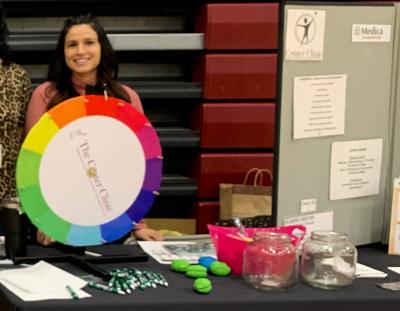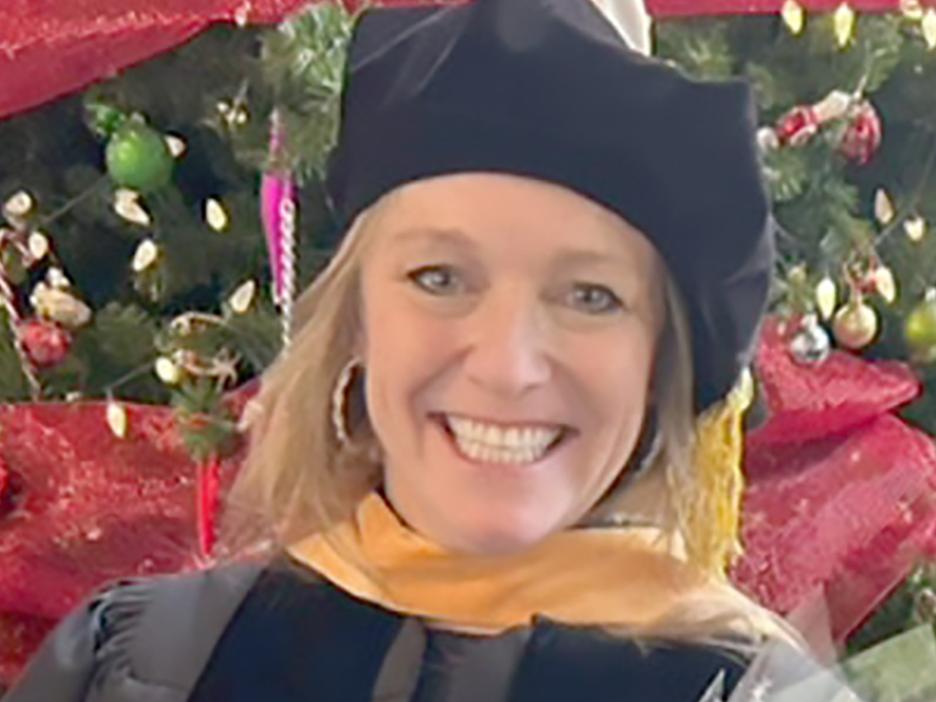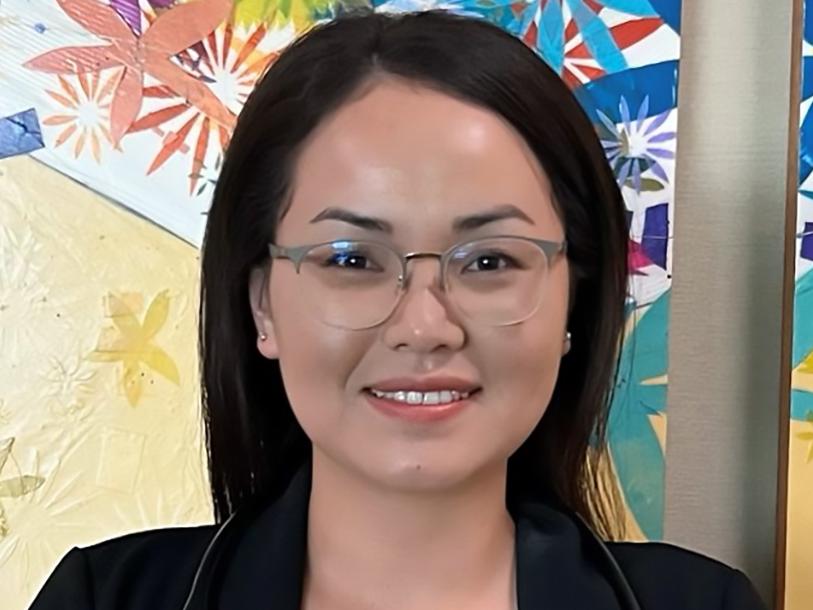Students in Viterbo University’s Doctor of Nursing Practice program undertake projects or research focused on improving patient and population health outcomes. In the case of DNP student Zuri Cevallos, unexpected results from her research on one aspect of health care led to health improvement projects unrelated to her original research.
Cevallos’s hypothesis when she started her DNP research was that lack of access to translation services for the Spanish-speaking patients at the Dodge Center, Minn., nonprofit community-based clinic where she worked was a major barrier to getting quality health care.
That hypothesis grew out of her own experiences.
Born in Mexico to Ecuadoran parents, Cevallos moved to southern Minnesota in the mid-1990s with her family, starting school without knowing any English. By second grade, she had mastered English well enough to start accompanying her parents to medical appointments, where she would help translate.
After graduating from high school (Maplewood Academy), Cevallos went on earn her nursing degree at Union College in Lincoln, Neb., graduating in 2016 and working in several hospitals throughout the country until she moved back to Dodge Center in 2020 and began working at Mayo Clinic’s intensive care unit in Rochester.
The demands of family life necessitated a change for Cevallos in 2021, and she cut back her hours at Mayo and began working part time in Dodge Center at The Center Clinic, a facility that has a large base of Spanish-speaking patients, most of them undocumented migrants. Her work at The Center didn’t involve direct care for patients, which she missed, but she had a passion to serve that population however she could.
In May 2022, Cevallos enrolled in Viterbo’s DNP program. “I just knew that I’d be able to do way more to serve people with a higher degree,” said Cevallos, who is going on a medical mission trip to Peru in July. “I want to be able to do more, have more autonomy. I have always wanted to do things like Doctors Without Borders, and you’re very limited as a nurse on the types of assignments you can take.”
For her Viterbo DNP research project, Cevallos figured Spanish-speaking patients at The Center would face the same language issues in the health care system her parents faced, especially those who sought care someplace other than The Center. “I remember it was so hard to watch my parents struggle, so I wanted to find out what are the experiences of people now in the medical field,” she said.
As Cevallos interviewed people, though, she began to find that language wasn’t as big a barrier as it was for her parents. Even if patients went to the Mayo emergency department, for example, and didn’t have a dedicated translator, most of the time there would be someone who spoke Spanish who could help translate.
During Cevallos’s interviews, her natural empathy and curiosity led her to deeper discussions and the discovery that the biggest problem facing patients at The Center was lack of insurance and inability to afford care. One woman told her about her middle-school aged daughter who was suffering greatly from tooth pain and in danger of losing her tooth.
The idea of offering dental care at The Center had been floating around for years, but that woman’s story ignited a personal mission for Cevallos. She successfully applied for an annual grant of $25,000, renewable for up to four years, to help start a dental clinic. She also wrote a grant for $15,000 for home health care equipment for patients at The Center to pay for home blood pressure monitoring equipment and other items. And in early May, she submitted a letter of intent for another $100,000 grant, the first step in the application process.
“The grant writing process isn’t fun at all, but seeing what we can accomplish with the money is huge and worth it,” said Cevallos, who served six years in the Army National Guard and has two sons, ages 4 and 1, with her husband, Josh Faber, also a veteran of the Army National Guard.
Cevallos’s work on her DNP research project, her class work, and her commitment to helping an underserved population have been especially impressive to Michele Merten, director of Viterbo’s graduate nursing program.
“She strives to give 110 percent to everything she does,” Merten said. “Anyone who has ever written a grant knows the amount of time required to complete and submit, often with a short turnaround time. I couldn’t be more proud of Zuri, and I have no doubt that she will continue to positively impact health care outcomes for those patients she serves.”
Merten said Cevallos’s DNP project is a great example of how students in partnership with area health care organizations and communities can find new ways to improve health outcomes for people. There have been many other examples, Merten noted, including two of note that were completed this year.
Kaitlyn Champa’s project focused on evaluation of a volunteer program in southeastern Minnesota serving individuals experiencing homelessness. Her study looked at educational sessions and perceptions (pre/post educational session) on attitudes toward those experiencing homelessness.
Kelsey Lomas’s project with Tomah Health focused on resumption of a nurse practitioner-led foot-care clinic. Her project looked at two free foot-care clinics (spring and fall of 2023) through which 69 participants received foot care and 24 DNP students in the nurse practitioner tracks provided the foot care services. A Tomah-area foot-care clinic in March 2024 served more than 40 participants (with a wait list of an additional 50-plus people emphasizing the need for this service).
“Due to Lomas’s DNP project and the support of Tomah Health, the plan moving forward is to provide three community foot care clinics per year through Tomah Health and Viterbo University’s nurse practitioner students,” Merten said.





